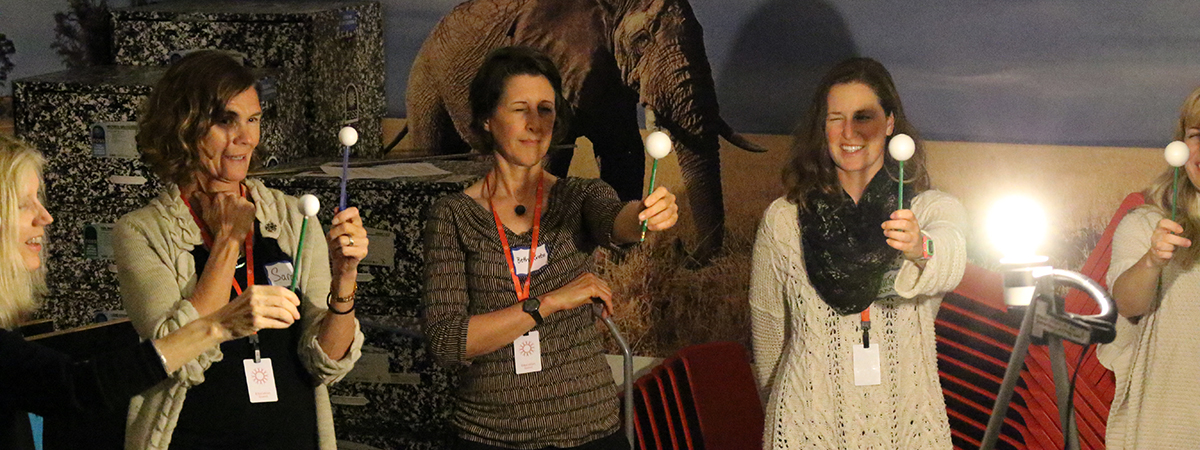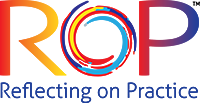
Professional learning across time and space
Posted by: admin
Author: Kristin Evans
Organization: University of Texas, Austin-Marine Science Institute
Hi! I’m Kristin Evans. As an informal educator, I know that many of us in our field live in a world where it’s unlikely that we’ll stay working in a single institution for our whole careers. Being open to change, while keeping the big picture in mind is essential to our practice. It’s important that the professional learning experiences we have be transferable to other places too, they need to support where our career path takes us. In my career, I have used Reflecting on Practice™ in three different organizations. My experience shows the value that a powerful professional learning experience can have across time and space, as well as teams and individuals.
I first started using RoP while I was at the Birch Aquarium at Scripps Institution of Oceanography, UC San Diego, where I initiated it with my team of sixteen educators. Over a period of about eight years, we used the program together—it got us through some organizational bumps in the road, and we worked together to shape the program in a way that made it essential for our organization. Then, I moved to the Texas State Aquarium, where I was able to implement it with a slightly smaller team of staff. And most recently, I’ve brought it to my newest position at the University of Texas, Austin- Marine Science Institute—where we have a staff of only five, including myself!
What this experience has taught me is that RoP is really valuable to organizations of all sizes:
- The program is pliable to your organization’s needs. You might find that your team needs to focus on one idea more than others—you can do that! Small teams, like mine, might choose to adapt activities to their size or spend a different amount of time on particular discussions. All of this is do-able, as long as the customizations are made with intention.
- But at the same time, it is stable. The core elements of the program are applicable to informal learning organizations everywhere—so once you’ve got the basics down, you can carry it to new places, spaces and teams, and it will still benefit you and your team.
- And, it shapes both teams and individuals. RoP has really affected my practice as a manager—how I work with my teams, and the different coaching practices that I use—as well as the practice of educators on my staff. As a team, we got to see the changes in people’s confidence, and how they speak and reflect on what they do; and, it changed both how we worked within our institution and how our institution represented what we did.
At each of my organizations, the culture, needs, and structure affected the implementation. We can integrate it into existing processes and structures—and that was a great selling point for getting leadership on board with implementation. In this way, we were able to more easily institutionalize the practice. At the same time, RoP has also helped advance other members of my teams who have moved to new institutions. For example, one practitioner on my team moved to be a manager at a different institution. In her words, participating in RoP helped give her a surer, stronger footing in her new role because of the shared practices and language to enter into her new team. For people who want to move up the latter and change their careers, this program gives you the tools you need to help move that forward and participate in a shared community of informal educators.

Comments are closed.